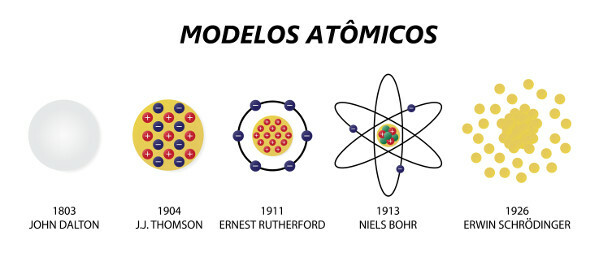Leucippus and Democritus became better known to posterity as the founders of t.atomist theory. In the writings left by thinkers pre-Socratic, gathered and known as the theories of Abdera's School, we find the first ideas of the atom that have been recorded in history.
The theories of these thinkers can also be considered as the beginning of the Chemistry, in addition to being an important tool to understand the thinking of pluralists in Ancient Greece. The thought of the two philosophers is inseparable, since the atomist doctrine was started by Leucippus and ended by Democritus, his disciple.
Read too: Presocratic Philosophical Schools
Biography of Democritus and Leucippus
Leucipus was born in Miletus (city where you born tales, the first philosopher) in 500 BC. Ç. The thinker came into contact with the ideas of the also pre-Socratic Parmenides, while living for a time in Elea. After his stay in Elea, he left for Abdera, where he founded a philosophical school and met his main disciple, Democritus, with whom he formulated the atomist theory. Leucipo died around 420 BC. Ç.
Democritus lived between 460 and 370 a. Ç. His outgoing personality earned him the recognition of “the smiling philosopher”. In addition to his good humor, the thinker is known for having established, together with his master Leucipo, the first idea of the atom, which gave impetus to ancient studies in Chemistry.
Leucippus and Democritus are the last pre-Socratics. His philosophy, as well as the philosophy developed by other pluralists, aimed to resolve the quarrel left by Parmenides (defender of immobility) and heraclitus (defender of the perpetual flux of nature).
Main ideas from Democritus and Leucippus
Leucipo is responsible for pointing out, for the first time, that the origin of the universe derived from microscopic, infinite and indivisible elements, which always aggregated, forming the beings and objects of the world. Democritus, his disciple of the School of Abdera, perfected the theory of master Leucippus, giving it a name and more details.
For the pre-Socratics, the nature would be composed of atoms. The Greek word atom means "without division" or "indivisible". Atoms would be, in the conception of ancient atomists, the smallest possible particle.
→ Atom

More modern atomic models that were influenced by Democritus' theory.
The smallest particles had an ability to aggregate and release according to their characteristics. THE theory atomistic of Leucippus and Democritus is quite rudimentary and outdated compared to atomic models more recent, like the models of Bohr and Rutherford. However, the history of Atomistic begins with Leucippus and Democritus who, in addition to their historical importance, have the merit of having formulated a atomist theory without any kind of technological equipment to help and prove what they were talking.
According to ancient atomistic theory, the atoms that made up the objects had the same characteristics as the objects they formed. For example, if the object were blue, the atoms would be blue. If the object was triangular, the atoms that formed it were triangular. The atoms were infinite and grouped by the similarity, that is, equals had the ability to come together, giving shape to things.
Atoms were infinite and were never created, having always existed in the Universe. were also invisible and could only be rationalized and never proved.
Read too: What is Philosophy?
Leucippus and Democritus for Chemistry
For having formulated the first atomistic theory, which would bring the notion of a chemical composition of the parts of the Universe through elements, Leucippus and Democritus are considered the first exponents of Chemistry as a natural science that investigates the elementary composition of stuff.
Sentences
Phrases and quotes from Democritus:
"We define what is sweet, bitter or colors, but the composition of these definitions is in the atoms."
"Man is only unhappy when he is unfair."
"Good does not simply mean not doing evil, but rather not wanting to do evil."
"Man is a microcosm."
by Francisco Porfirio
Philosophy teacher
Source: Brazil School - https://brasilescola.uol.com.br/filosofia/leucipo-democrito.htm
